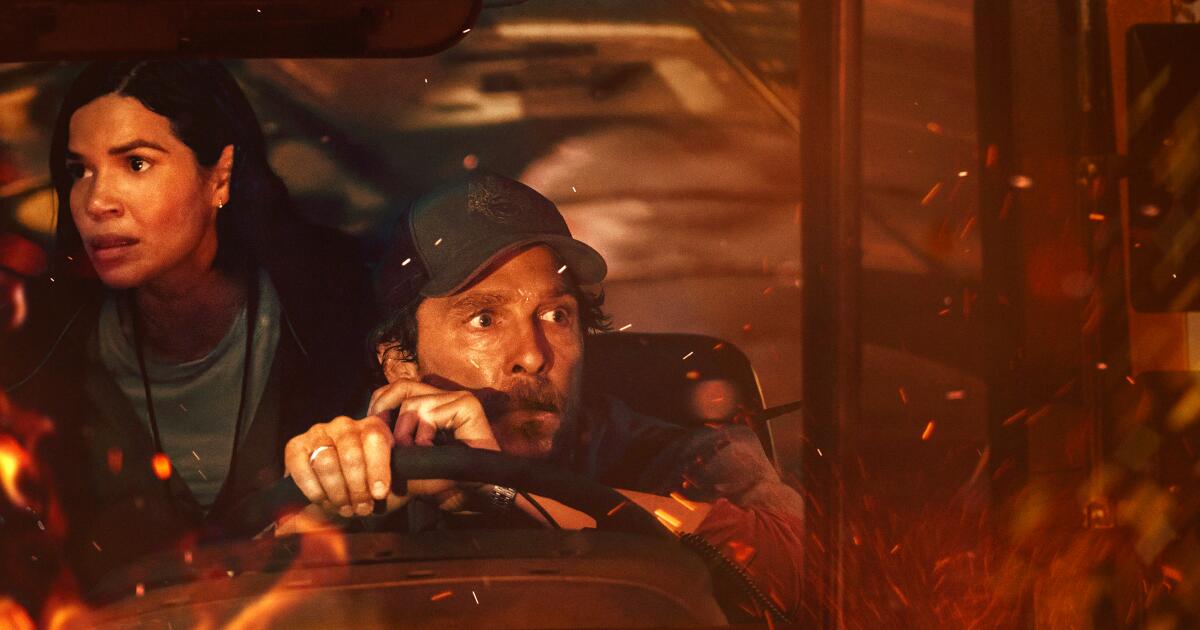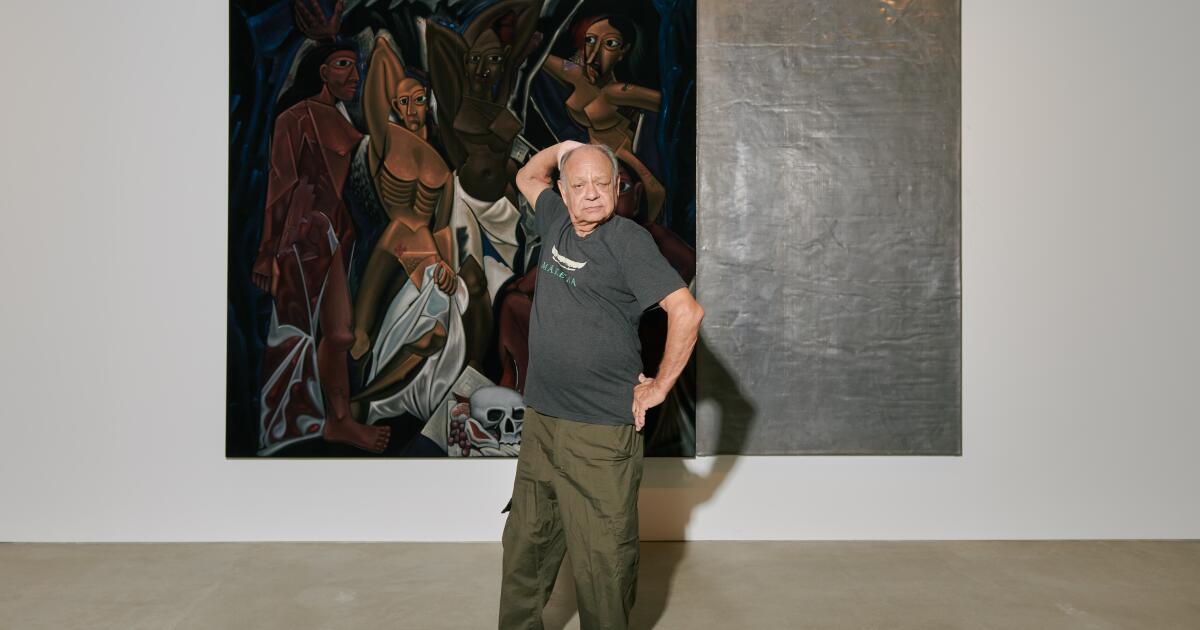‘The Lost Bus’ review: 2018 Camp fire becomes McConaughey disaster movie
Disasters are real — also, these days, frighteningly common, be they epic confluences of nature and negligence or the murderous and preventable kind. And when it comes to disaster movies, it’s hard to know what the acceptable level of exploitation is.
Of course, director Paul Greengrass could never be confused with the unseriousness of producer Irwin Allen (“The Towering Inferno”) or filmmaker Roland Emmerich (“The Day After Tomorrow”), ringmasters who preferred heaping helpings of A-listers on slick, expensive calamities. Rather, when Greengrass, coming from documentaries, tackles dark days of mass casualty, they tend to be true stories like “United 93” and “Bloody Sunday.” His stripped-down, jagged style, absent marquee names and focused on such issues as terrorism and community, brings intelligent urgency to the unfathomable.
With his new film “The Lost Bus,” however, starring Matthew McConaughey and America Ferrera, about the real-life effort to save a busload of schoolchildren from the 2018 Camp fire, a wildfire that would destroy most of Paradise, Calif., Greengrass is trying to merge the two sensibilities. This time he mixes star heroism with you-are-there spectacle and the results can be galvanizing if awkwardly framed.
“The Lost Bus” is not as potent as Greengrass’ “Captain Phillips,” in which Tom Hanks anchored a re-created reality no less pulse-pounding than any action blockbuster. Instead the director seems to be in a programmatic mode. There are scenes of nerve-jangling terror that weld you to your seat, but they’re sandwiched in between a lot that feels very much sculpted for three-act character arc effect by Greengrass and co-writer Brad Ingelsby.
McConaughey plays Paradise bus driver Kevin McKay, whose life is almost comically scripted to come off as especially challenged before one lick of flame gets near it: strapped for cash, dying dog, recently dead father (no love lost), sullen teenage son (love lost), ex-wife (also unhappy) and a memory-ailing mother. But on the afternoon of Nov. 18 as the fires reach eastern Paradise, Kevin’s is the only bus that can meet a request from his dispatcher (Ashlie Atkinson): Pick up stranded elementary schoolkids and evacuate them to safety.
A failed dad feeling the weight of sudden responsibility, Kevin corrals as co-chaperone a schoolteacher (America Ferrera). Though Mary is a mother eager to get to her own child, she’s willing to help. The occasional cut to Yul Vazquez as the fire chief spearheading rescue efforts, however, is this movie’s barometer of increasingly bad news. As smoke quickly darkens the day and the unstoppable, town-hopping fire hems in the bus, cutting off routes, the journey takes a dystopian turn, raising the stakes and alarm levels to unimaginable heights. (Eaton and Palisades survivors, fair warning — you were never going to watch this anyway.)
McConaughey is solid casting, his unshowy working-class fortitude slightly tinged with fear. In his and Ferrera’s sturdy presence and in the serrated frenzy of Greengrass’ editing style, a shorter, tighter “The Lost Bus” would still hold plenty of dread and dramatic resilience. The fire sequences alone, captured in the hellish fuzz of Pål Ulvik Rokseth’s cinematography, are pinnacles of this practical-meets-digital-effects discipline. But Kevin’s dippy redemption arc, doled out midperil in tortured glances and forced dialogue, drags us out of the intensity.
It’s also odd that the activist-minded Greengrass didn’t do more with so corporate a villain: legally responsible utility PG&E, represented in the movie by an ineffectual suit who is briefly yelled at. Forget that redemption story — Greengrass could have leaned even more into those action tropes and, as a final touch, had McConaughey punch PG&E in the jaw.
‘The Lost Bus’
Rated: R, for language
Running time: 2 hours, 9 minutes
Playing: In limited release Friday, Sept. 19; on Apple TV+ on Oct. 3

